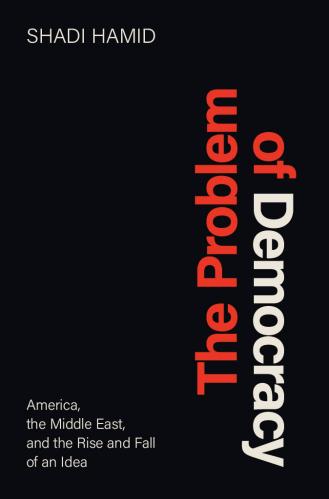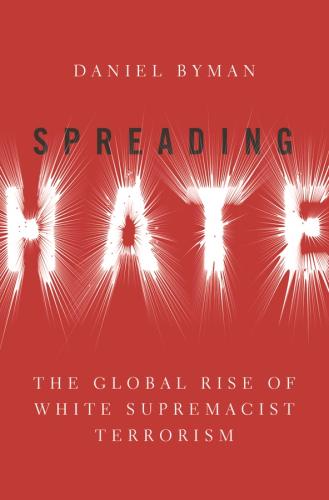Two related issues have entered our public debate in recent months, especially after the rise of a far-right Israeli government that President Joe Biden called “one of the most extreme” he has seen. The first is the debate about whether a two-state solution is still possible, and if not, how to define the territories from the Jordan River to the Mediterranean Sea. The second is a debate about what constitutes antisemitism, especially after the Biden administration took important steps to fight increasing antisemitism. These debates have touched on whether or not antisemitism includes opposition to Zionism and Israeli policies. In our latest University of Maryland Critical Issues Poll with Ipsos, we sought to probe American public views on these issues.
This was a baseline poll of Americans’ views and awareness of these topics. We provided no introductions to the questions, attempting to find out if Americans felt they knew enough to answer these questions, and if so, what views they already held. With this approach, we were bound to find a large number of respondents who said they didn’t know or they were unfamiliar with concepts such as Zionism, exacerbated by the possibility that some might feel uncomfortable answering questions on issues that may be sensitive in our discourse.
The poll was conducted from June 21-27 among 1,439 respondents from Ipsos’s probabilistic KnowledgePanel. The margin of error is 2.9%.
Here are five clusters of findings:
First, in the absence of a two-state solution to the Israeli-Palestinian conflict, about three-quarters of Americans, including 80% of Democrats and 64% of Republicans, would choose a democratic Israel that’s no longer Jewish, over a Jewish Israel without full citizenship and equality for non-Jews living under its authority.
Second, most respondents said they were either “unfamiliar” or answered “I don’t know” when asked about their opinion of Zionism, the movement to establish a Jewish state in what is now Israel. At the same time, a plurality said they have neither positive nor negative views of Zionism, while more respondents said their views were negative than positive.
Excluding those who answered “unfamiliar” or “I don’t know,” almost half of the respondents (49%) said they have neither a positive nor a negative impression of Zionism, including 50% of Republicans and 44% of Democrats. Overall, the respondents also saw Zionism more negatively (30%) than positively (21%), with 36% of Democrats saying they held a negative impression of Zionism compared to 20% who said it was positive. Among Republicans, 32% said they had a positive impression compared to 18% who had a negative impression.
Third, a plurality of respondents, 37%, said antisemitism is increasing, compared to five years ago, while 32% said they didn’t know.
Excluding those who said they didn’t know, 55% said antisemitism was increasing (including 48% of Republicans and 61% of Democrats), 7% said it was decreasing (including 10% of Republicans and 4% of Democrats), and 38% said it was about the same (including 42% of Republicans and 33% of Democrats).
Fourth, about a third of Americans said they didn’t know if attitudes against Jews (31%) and attitudes against Judaism (36%) constituted antisemitism, while a majority and near-majority said attitudes against Jews (58%) and attitudes against Judaism (47%) constituted antisemitism. One reason for asking about both Jews and Judaism is that in previous polls, we found that Americans tend to express more prejudice against religions than people, as our 2015 poll on Islam and Muslims found, with some speculations about possible reasons. This poll appears to confirm the trend.
Excluding those who didn’t know, 84% of respondents said that attitudes against Jews constituted antisemitism (including 84% of Republicans and 85% of Democrats).
Among those who offered opinions, 73% of Americans said attitudes against Judaism constituted antisemitism (including 75% of Republicans and 73% of Democrats) but a quarter of Americans said they did not (including 24% each of Republicans and Democrats).
Almost two-thirds of Americans, 62%, said they didn’t know if attitudes against Zionism constituted antisemitism, while 21% said they did not and 15% said they did. Excluding the respondents who said they didn’t know, a majority (56%) said attitudes against Zionism are not antisemitic, including 64% of Democrats but only 44% of Republicans. A majority of Republicans (52%) said it was antisemitic to be against Zionism.
When asked if attitudes against Israeli policies constituted antisemitism, nearly half of respondents, 48%, said they didn’t know, while 37% said they did not and 15% said they did. Excluding those who said they didn’t know, 70% of respondents said attitudes against Israeli policies were not antisemitic, compared to 28% who said they were. Among Democrats, 76% said such attitudes were not antisemitic, compared to 21% who said were; among Republicans, attitudes were more split with 42% saying yes compared to 56% saying no.
Fifth, about one-third (35%) said they didn’t know when asked how frequently they thought labeling people as antisemitic is used to describe those who are genuinely antisemitic. Excluding those who didn’t know, 29% of respondents said “frequently,” 44% said “sometimes,” and 20% said “not often.” Among Republicans, 20% said “frequently,” 47% said “sometimes,” and 24% said “not often.” Among Democrats, 38% said “frequently,” 42% said “sometimes,” and 15% said “not often.”
When asked how often the label was used to delegitimize political opponents, 36% of respondents said they didn’t know (including 34% of Republicans and 31% of Democrats). Excluding those who didn’t know, 33% said “frequently,” 47% of respondents said “somewhat,” and 14% said “not often.” Among Republicans, 39% said “frequently,” 44% said “somewhat,” and 11% said “not often.” Among Democrats, 26% said “frequently,” 49% said “somewhat,” and 17% said “not often.”
Finally, when asked about their impression of using the antisemitic label to delegitimize critics of Israel, 39% of respondents said they didn’t know. However, excluding those who didn’t know, 36% said such a label is used to delegitimize critics of Israel “frequently” (34% of Republicans and 36% of Democrats), 45% said “sometimes” (including 47% of Republicans and Democrats), and 14% said “not often” (including 13% of Republicans and 12% of Democrats).
Key takeaways
One key takeaway pertains to how Americans see the choice between Israel’s Jewishness and its democracy if a two-state solution were no longer on the table. Not only does a large majority, 73%, choose democracy even if it meant that Israel would no longer be a Jewish state, but this included most Republicans, 64%, who tend to be very supportive of Israel. Further analysis also shows that a majority of Evangelical Christians, 58%, who tend to be most supportive of Israel, would choose democracy over Jewishness in Israel.
While it is not surprising that a large number of Americans said they were unfamiliar with Zionism and offered no opinion — given that we purposely avoided offering a definition — it is still notable that more Americans held a negative view of Zionism than a positive one, as a plurality held neutral opinions. In some ways, this is related to the first finding about Israel’s Jewishness vs. its democracy, as there does not seem to be a strong American public attachment to Zionism, which entails a Jewish character of Israel.
A third key finding is that Americans who hold opinions on the subject resist linking criticism of Israeli policies and of Zionism to the notion of antisemitism, a debate that has been engendered as the White House considered adopting different definitions of antisemitism. Excluding those who said they didn’t know, 70% of those offering opinions, including most Republicans, said such criticism was not antisemitism.
It is notable that the questions about Zionism and antisemitism are new to our University of Maryland Critical Issues Poll, as we have not addressed these issues in past polls, so we do not have a way of assessing change over time. We hope to repeat these questions in future polls to assess trends in public attitudes.
The Brookings Institution is committed to quality, independence, and impact.
We are supported by a diverse array of funders. In line with our values and policies, each Brookings publication represents the sole views of its author(s).











Commentary
How do Americans feel about Zionism, antisemitism, and Israel?
Findings from a new poll
July 18, 2023